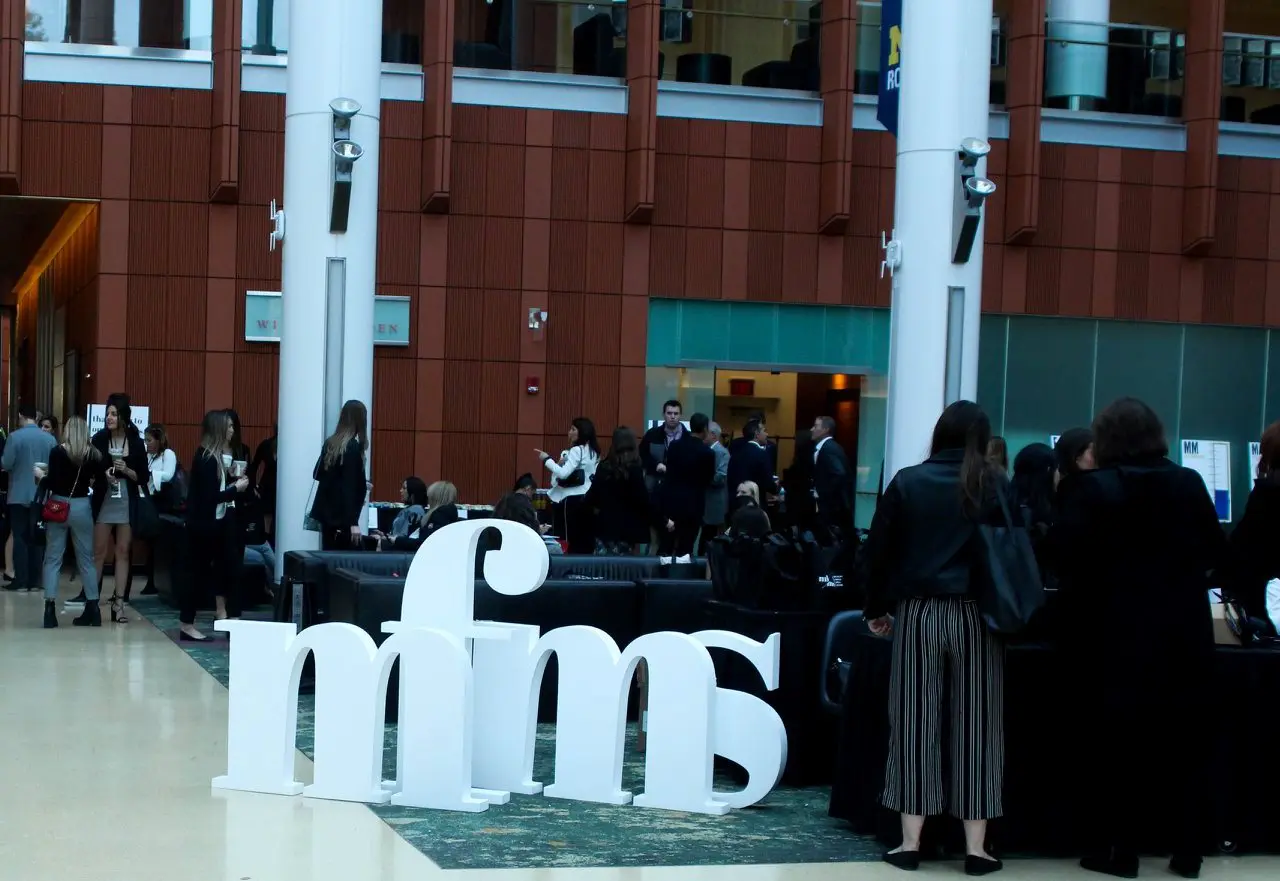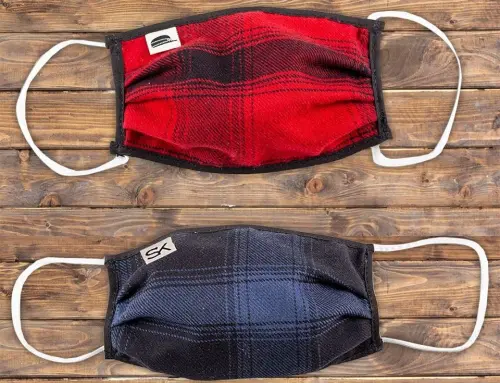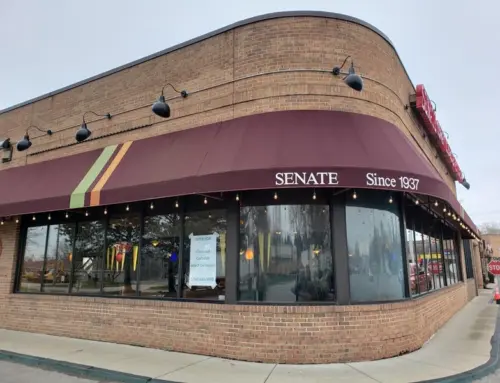It’s not every day in these parts when arrivals to a business conference are met with a bag of makeup and beauty samples, by greeters bedecked in chic black and white attire, at a registration table sponsored by Tommy Hilfiger, but that’s exactly how a recent day began at the Ross School of Business at the University of Michigan.
The event was the inaugural Michigan Fashion Media Summit that was held on August 13, 2018. Students planned and ran the event, the likes of which many seem to believe was long overdue. A standup sign on the stage even proclaimed, “fashionably late doesn’t even begin to explain it.”
With music thumping more like a fashion show than a business conference, the lights dimmed, and the stylish student body began to contemplate the key question of the day, “What is the future of fashion?”
Ali Gropper, Co-Founder and President, took to the stage to welcome participants and kick off the event. Her remarks included, “It is crazy to wrap my head around the fact that I am standing amongst all 500 of you–hailing from Ann Arbor, to Detroit, to New York City, to Texas–who are all here for the same reasons. To fulfill a mission that Michigan has been lacking for far too long. To shed light on the process of transitioning from a student to a fashion executive. To create a platform for college students and industry professionals to collaborate and shape the future fabric of fashion. To start a new chapter at the University of Michigan that is certainly fashionably late.”
With that, the conference was off and running, as perhaps, was a new style of supporting fashion-oriented students at the University of Michigan.
Amy Levin, who’s own fashion ambition started in college and led to the well-known style community, College Fashionista, took on her role as emcee for the event. She couldn’t help but notice the parallels stating, “The MFMS mission reminds me so much of the start of College Fashionista. I am honored to host the first ever Michigan Fashion Media Summit.”
The keynote was delivered by an impressive get, Gary Sheinbaum, CEO of Tommy Hilfiger Americas. His address was followed by a panel discussion that was moderated by U of M Professor and Director of Partnership Activation & Event Retail at Adidas America, David Cho. Other panelists included Ben Fischman, formerly of Lids, Rue La La, and now his newest venture, M.Gemi; Ronen Lazar, Co-Founder and CEO of INTURN, and Alex Drinker, the VP of Marketing for Shinola Detroit.
After a lunch break, Rachel Zoe, who climbed to fashion fame during her Bravo television show The Rachel Zoe Project, and now sits atop a fashion empire of her own, appeared from a remote location. While she was not able to attend the event in person, she seemed committed to the mission. A video of her Q&A can be viewed online.
A second panel discussion was then moderated by Jill Manoff, Editor-in-Chief of GLOSSY. It focused on the business side of fashion, and particularly the role influencers now play in the growth of brands. Panelists included Ashley-Brooke Sandall, Director of Strategic Partnerships at Council of Fashion Designers of America, John Mezzo, VP of HR at Michael Kors – Retail, and Meredith Paley, VP of PR at Talbots.
The second panel was followed by a choice of breakout sessions based on which topic was best suited to each participant’s interests and aspirations. One session focused on the role millennials are playing in shaping the future of the industry. Another, entitled “Defining Design: Tailoring Everyday to Runway” was about creativity and filling a void in the market. A third panel highlighted the personal industry experiences of three University of Michigan alum: Jordana Schrager, Founder and CEO of By Jordana, Tracy Buescher, Founder and CEO of nuyu, and Melissa Fleis, Founder and Creative Director of Melissa Fleis.
The last panel discussion of the day tackled the style influence of social media. Mike Hondorp, formerly Instagram’s Global Lead of Shopping and now Chief Growth Officer at Whalar, Jennifer Bandier, Founder of BANDIER, and Wendy Steinberg, Group President of Betsey Johnson at Steve Madden, discussed the importance of mobile accessibility. The significance of social media and mobile technology within the industry may have best been summed up by Hondorp’s simple statement, “Convenience isn’t a nice to have. It’s a need to have.”
It’s entirely possible that MFMS is also a “need to have” for students with designs on a career in the fashion industry. Plans are already in the works for the spring 2019 collection of speakers.







Leave A Comment
You must be logged in to post a comment.